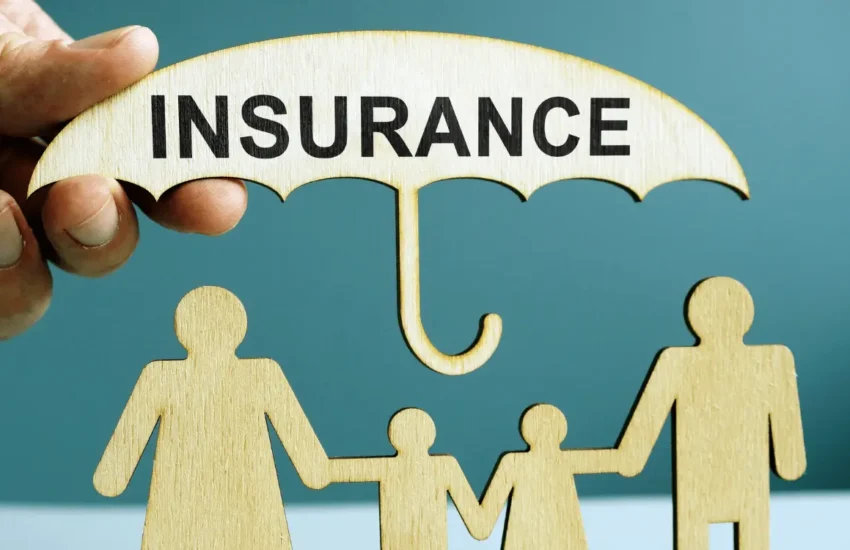Insurance plays a crucial role in managing risk and ensuring financial security. Whether it’s health, life, property, or car insurance, the concept behind insurance is to offer financial protection in case of unexpected events. By paying a small premium to an insurer, you transfer the risk of financial loss from yourself to the insurance company. In return, the insurer provides coverage for certain risks, whether it be damage to property, medical expenses, or even death.
What is Insurance?
Insurance is a contract in which an individual or business receives financial protection or reimbursement against losses from an insurance company. In return, the policyholder pays a premium. It provides a safety net for life’s uncertainties, helping people and businesses recover from financial setbacks caused by accidents, illness, natural disasters, and other unforeseen events.
Types of Insurance
- Health Insurance
Health insurance helps cover medical expenses, including doctor visits, hospital stays, and medication. It helps mitigate the high costs of medical care and can cover preventive care, surgeries, and treatments. - Life Insurance
Life insurance provides a financial payout to the beneficiaries of the policyholder upon their death. It helps ensure that your family is financially secure after you’re gone, covering costs such as funeral expenses, mortgages, and daily living expenses. - Auto Insurance
Auto insurance protects drivers from financial loss in case of accidents, theft, or damage to the vehicle. It typically includes liability coverage, which pays for damages to others, and collision and comprehensive coverage for your own vehicle. - Homeowners Insurance
Homeowners insurance provides coverage for damage or loss of a home due to events like fire, theft, or natural disasters. It may also include liability protection in case someone is injured on your property. - Disability Insurance
Disability insurance provides income replacement if you are unable to work due to illness or injury. This type of coverage is vital for those who rely on their ability to work for their livelihood. - Travel Insurance
Travel insurance covers the financial costs of emergencies that may occur during a trip, including medical expenses, trip cancellations, lost luggage, and more. - Pet Insurance
Pet insurance helps cover the cost of veterinary care for your pets, including routine visits, surgeries, and emergency care. - Business Insurance
Business insurance protects companies from potential risks, including property damage, employee injuries, and liability claims. It includes various forms like general liability insurance, workers’ compensation, and professional indemnity insurance.
Why is Insurance Important?
- Financial Protection
Insurance provides financial protection from the unexpected. It helps individuals and businesses avoid huge financial burdens caused by accidents, illnesses, or natural disasters. - Peace of Mind
Knowing that you are covered by insurance gives peace of mind. Whether you’re worried about medical bills, accidents, or the future of your family, insurance ensures that you have a safety net. - Risk Management
Insurance helps spread and manage risk. Instead of facing the full financial burden of an event, the cost is shared among policyholders, which makes it more manageable. - Protection for Loved Ones
Life insurance, in particular, ensures that your family will not be financially strained after your passing. It helps cover ongoing living expenses and any financial obligations you may leave behind. - Legal Requirement
Some forms of insurance, like auto insurance, are legally required in many places to ensure that drivers are financially responsible for accidents or damages they cause.
How Does Insurance Work?
When you purchase insurance, you agree to pay a regular premium to the insurance company. The company pools the premiums of all its policyholders to create a fund that can cover claims. If you experience an event covered by your insurance policy, you file a claim, and the insurance company reimburses you based on the terms of the policy.
For example, if your car is damaged in an accident, your auto insurance will cover the repair costs, minus any deductible. The amount you receive is based on the coverage limits and policy details, and the insurance company may also cover liability claims if the accident was your fault.
How to Choose the Right Insurance
- Assess Your Needs
Consider the risks you face in your personal or business life. Do you need health coverage? Are you looking for protection for your home or car? Assess your situation and choose insurance products that align with your needs. - Shop Around
Don’t settle for the first quote you receive. Compare quotes from different providers and evaluate their coverage options, terms, and prices. Ensure you get the best deal for your needs. - Understand the Policy
Make sure you fully understand the terms of your insurance policy. Pay attention to exclusions, limits, and deductibles to avoid surprises when you need to make a claim. - Review Regularly
As your life circumstances change, so should your insurance coverage. Periodically review your insurance policies and adjust them to reflect your current situation.
Conclusion
Insurance is an essential tool for protecting yourself, your family, and your business from unexpected events. By understanding the various types of insurance available and choosing the right coverage for your needs, you can manage risk and gain peace of mind. Insurance is about planning for the unexpected and ensuring that you’re financially prepared for whatever life throws your way.

